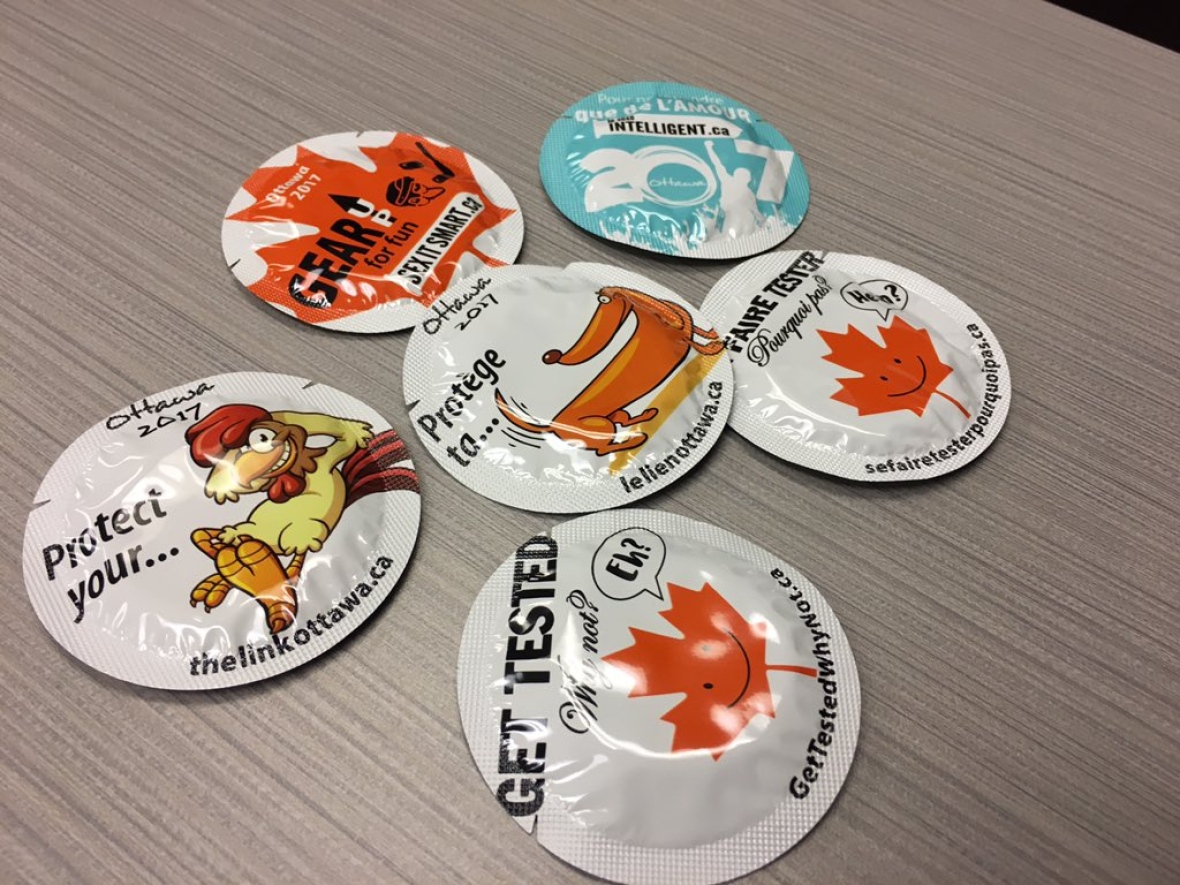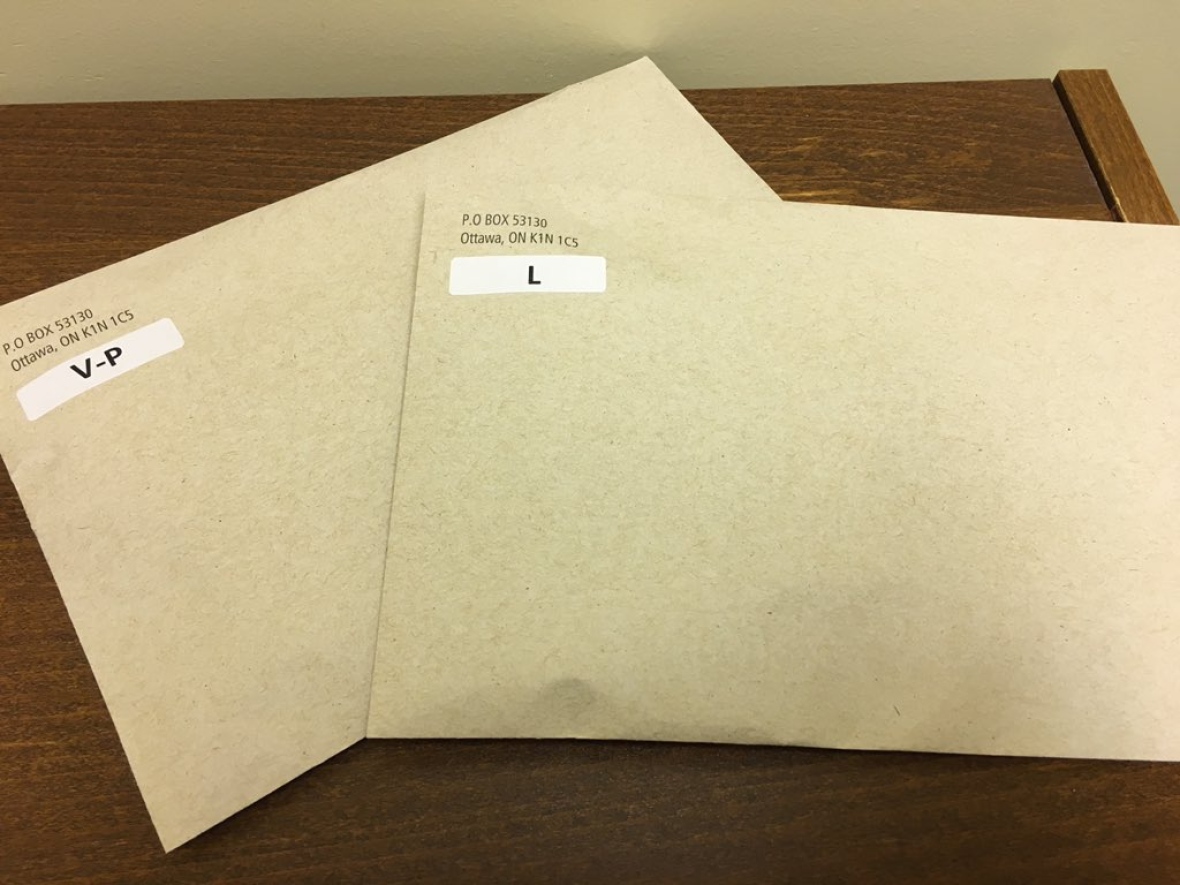Mail-order condom campaign aims to stamp out STIs among young adults
15-29 age group accounted for 77 per cent of gonorrhea, chlamydia cases

As teens and young adults continue to frequently test positive for two STIs, Ottawa's public health unit is trying to get protection into their hands — by sending condoms and dental dams through the mail.
People between the ages of 15 and 29 make up 77 per cent of those who test positive for gonorrhea or chlamydia, according to data released by Ottawa Public Health (OPH).
That number hasn't decreased since 2012. The health unit's most recent data is from 2016.
Health organizations across the country are "looking for creative ways" to offer education and prevention strategies for the two STIs because they're so easy to transmit, said Zhaida Uddin, a program development officer with OPH's sexual health team.
We really want to get the condoms into the hands of youth. Zhaida Uddin, OPH program development officer
More than 4 in 10 not using condoms
The numbers of single people in that age group not using condoms remains high: OPH data show 44 per cent did not use a condom the last time they had sex.
Through its Sex It Smart campaign, the health unit has been testing out new packaging designs and sending condoms to teenagers and young adults through the mail.
"We really want to get the condoms into the hands of youth, especially young people who may be becoming sexually active and not know anything about what kinds of condoms are available and what they like," Uddin said.

A design competition the health unit launched late last year ahead of Canada's sesquicentennial ended up with six winners, including a dachshund wagging its tail and a smiling cartoon rooster — the fan favourite.
The packaging also comes with four different slogans:
- "Get tested, why not, eh?"
- "Don't spread more than love."
- A hockey-themed design that reads "Gear up for fun."
- "Protect your..." followed by a picture of a comfortable-looking rooster.
Those condoms have been available in the city since July and have been fairly popular, according to Uddin.
Discreet brown or white envelopes
But getting those new designs and regular packages into the hands of sexually active teens and young adults has raised another challenge.
While they're offered through Ottawa Public Health and 142 partner agencies, there can still be a stigma around visiting those places in person.
That's where the mail campaign comes in.
Last year, around 1,500 packages were mailed out to people, and Uddin said the Sex It Smart campaign is on track to match that number in 2017, with 800 mailed out as of Wednesday.
People can fill out an online request form for either a package of 12 condoms or 10 dams, which are then mailed to their home in a discreet brown or white envelope.

The envelope doesn't indicate where the package comes from.
Concerns about parents finding out persist
But not all teens and adults are so sure about receiving condoms or dams in the mail.
Despite the plain packaging, Ricardo Lundy, 21, said he would be worried about family members discovering what's in the package.
"What if your parents don't know you're really partaking in certain activities, and then you have that shipped to your house and you're not there and an older sibling picks it up for you? And then that's a different discussion you might not want to get into."
But Lauren O'Reilly, 17, said it's easier to have them mailed out instead of having to walk into a store and face a cashier.
A plain envelope shouldn't raise alarm bells with parents, she added.
Maybe it would bring up questions with parents, but I think it's better than the consequences of not getting [condoms or dams] at all.- Lauren O'Reilly
"Maybe it would bring up questions with parents, but I think it's better than the consequences of not getting [condoms or dams] at all."
Mailed condoms come in four package types: regular lubricated, non-latex lubricated, large, and a variety pack.
The condoms are paid for by the Ontario government. It only costs around 80 cents to mail out the condom packages and less for letters containing dams, said Uddin.
Last year, 900,000 condoms were distributed by Ottawa Public Health and its partner agencies. In 2017, the goal is to surpass one million, she said.